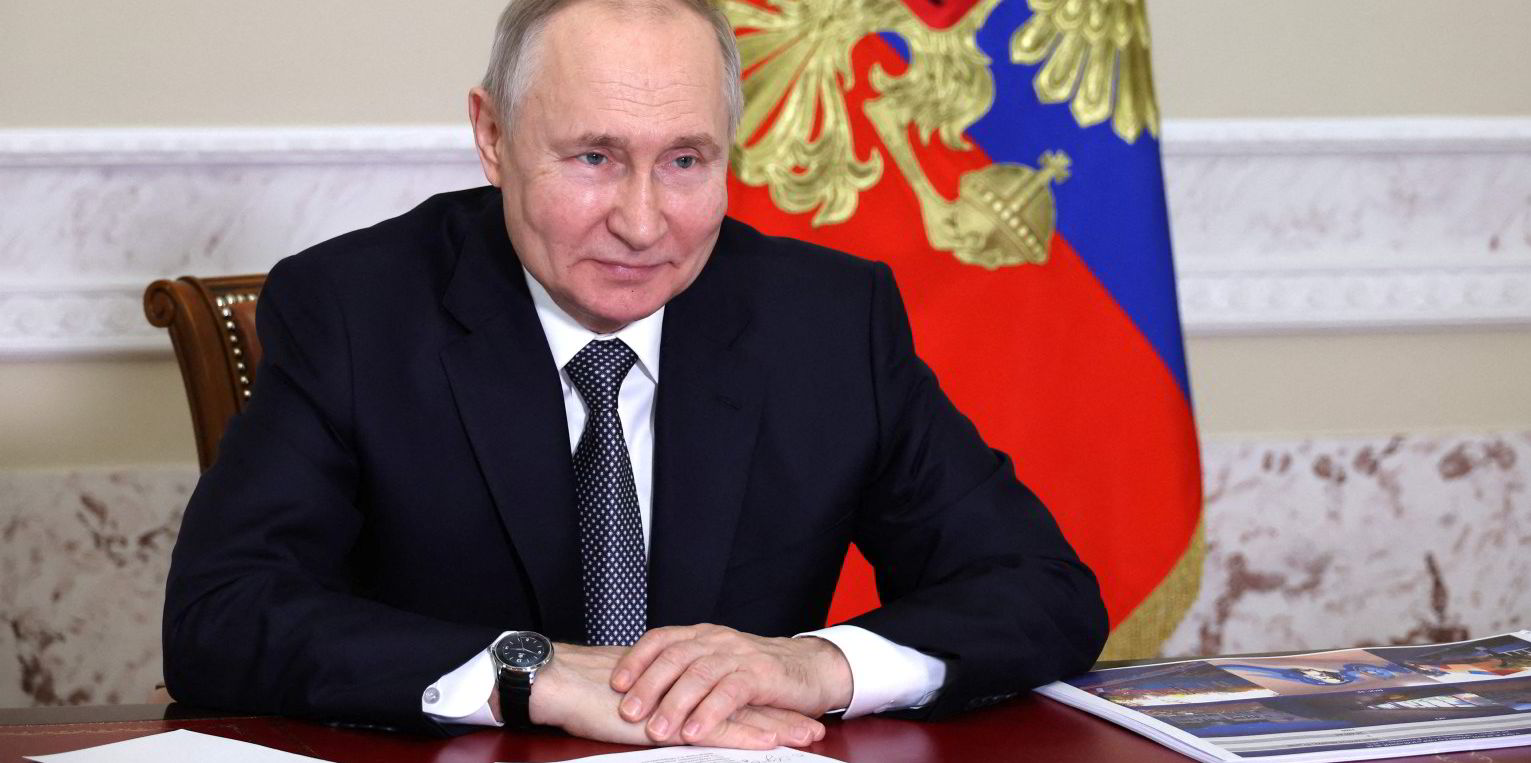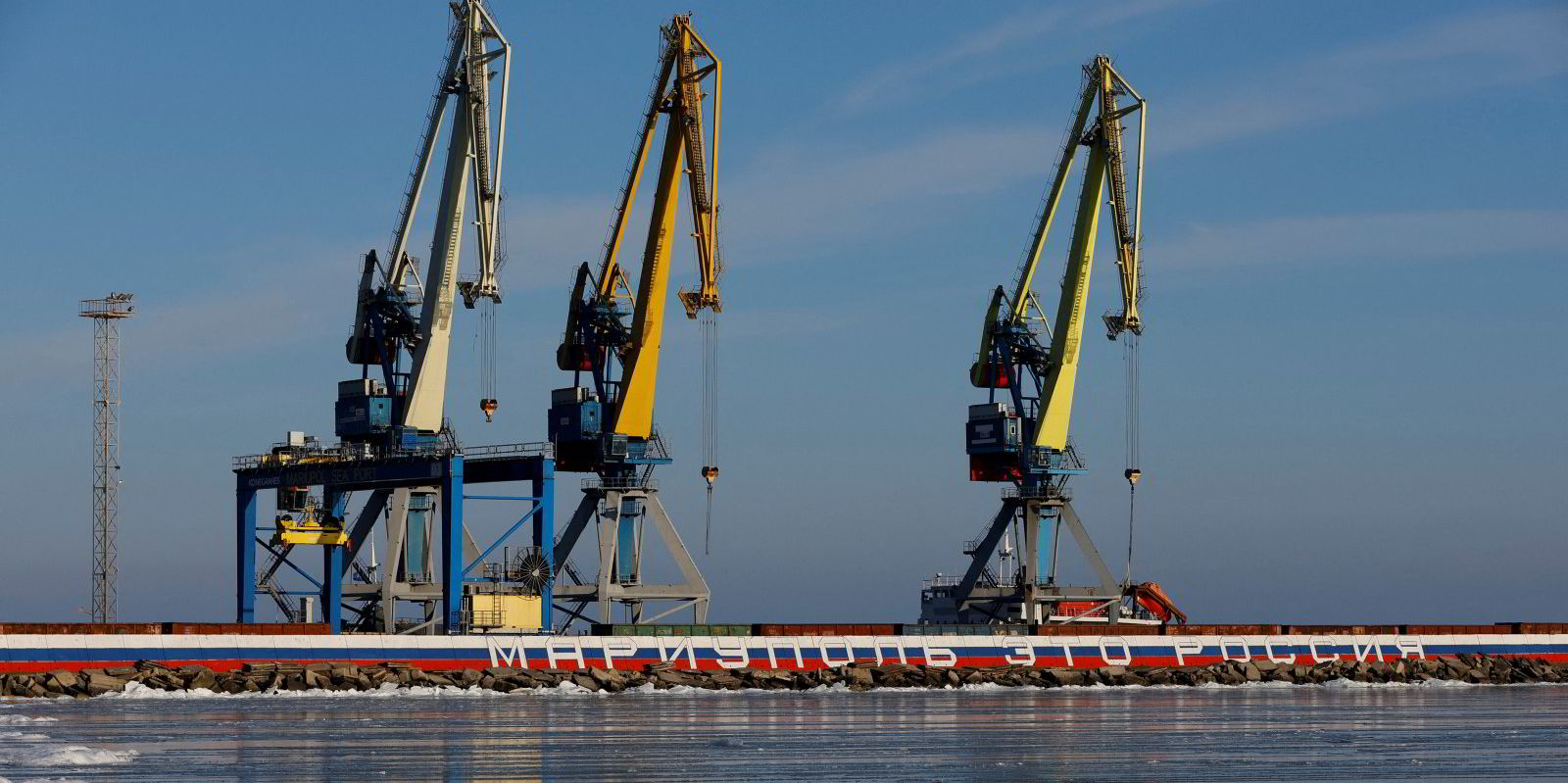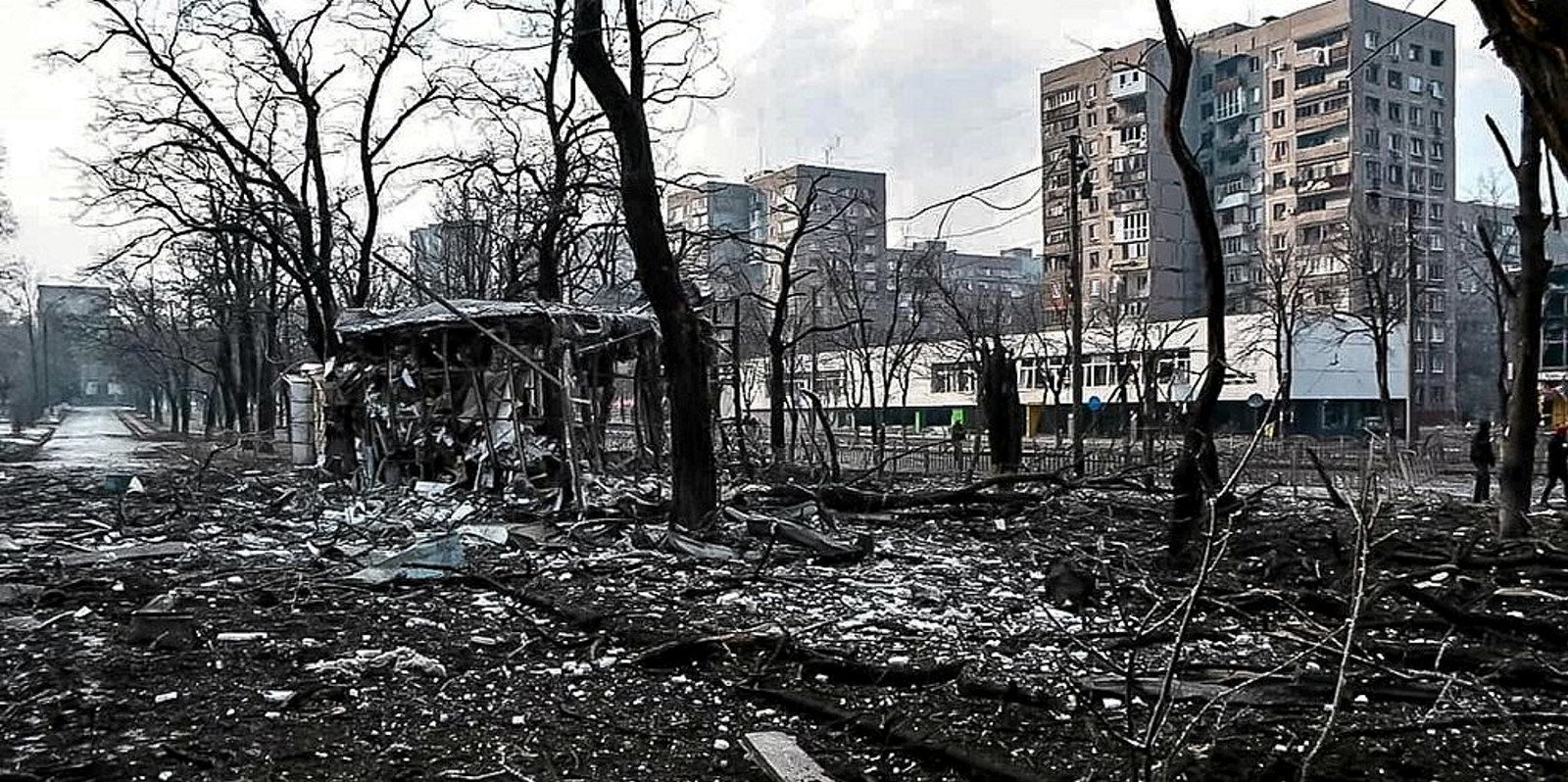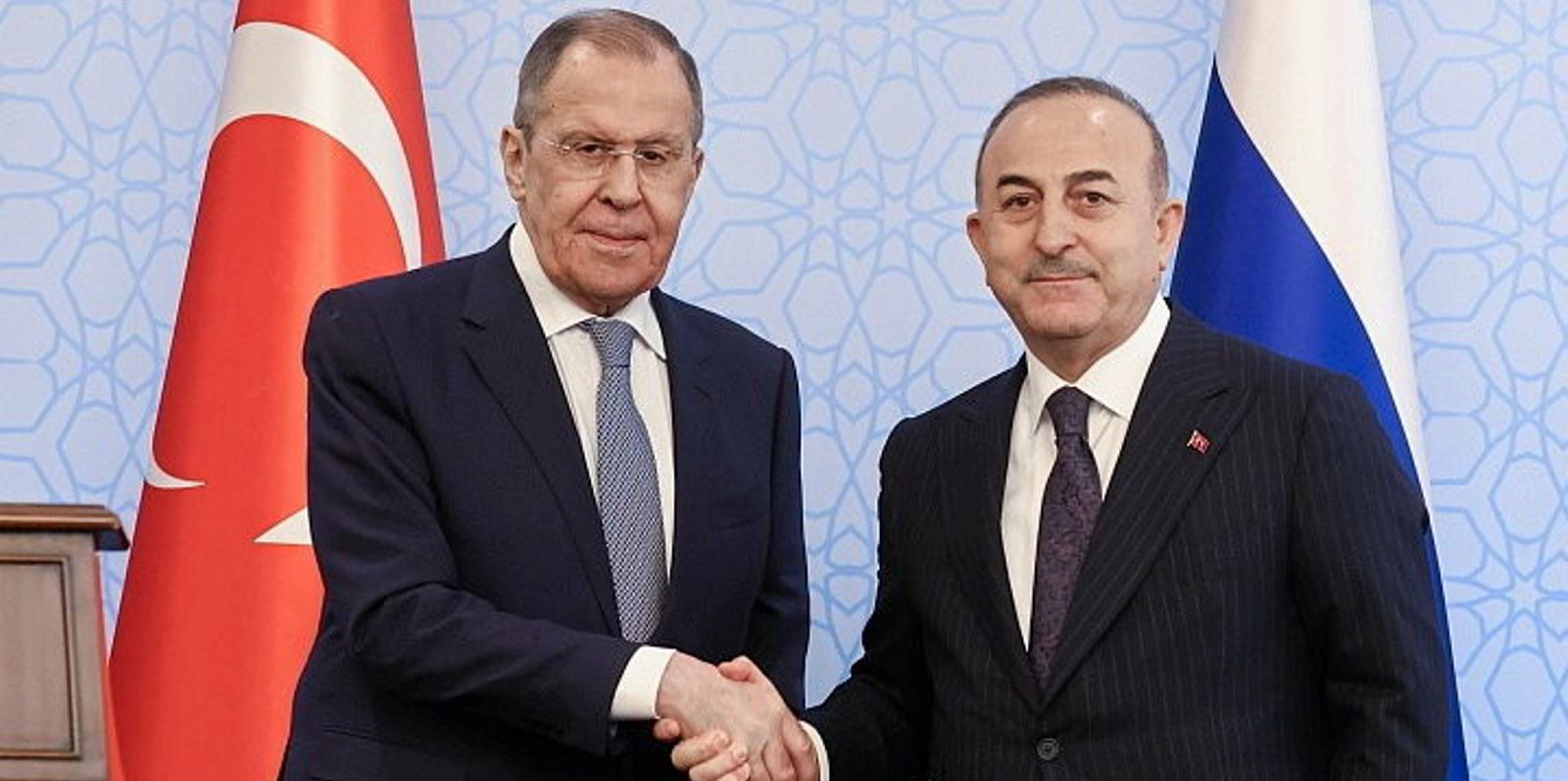The port of Mariupol — a battle scene between Ukrainian and Russian forces last year — is resuming grain exports under its Russian separatist administration.
The move was announced over the weekend by Denys Pushylin, acting head of the self-styled Donetsk People’s Republic (DPR).
The first vessel has already been loaded with grain, Russian bloggers cited Pushylin as saying.
The identity of the ship was not revealed and could not be independently established. Donetsk separatists last year moved to confiscate some of the vessels trapped in the Black Sea port.
One of them, the 21,500-dwt bulker Tzarevna (built 2004), could be seen in a port picture published last month by news outlet Donetsk News Agency.
After delivering their cargoes, grain ships out of Mariupol will return with construction materials to improve logistics and land transport in the hinterland, Pushylin said.
Local media reported last month that Russia, which conquered Mariupol and annexed the DPR after attacking Ukraine last year, was planning to install granaries there.
Any such deal is certain to cause an outcry in Ukraine and the international community backing the government in Kiyv. Ukraine and Western governments are considering the export of Ukrainian grain out of Russian-occupied territory as illicit trade of looted goods.
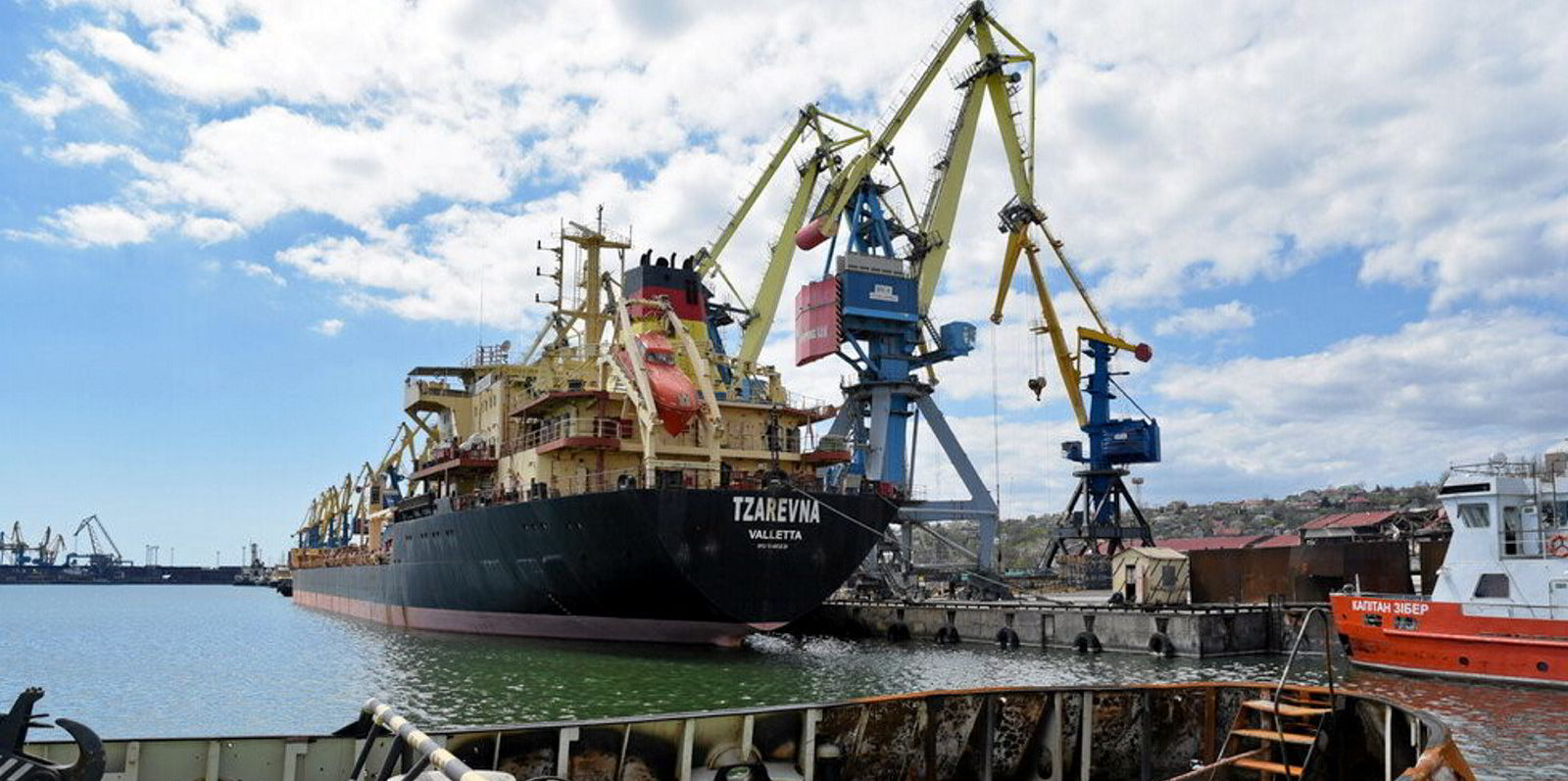
That, however, has not stopped Russia from trading out of the region with states and regimes that have not sanctioned it, such as Syria and other governments in the Middle East and Asia.
While Russia prepares to boost its own exports, it is set to block the seaborne export of Ukrainian grain.
A United Nations-led safe corridor scheme out of Odesa, Chernomorsk and Yuzhnyy/Pivdennyi is set to expire on 18 May and Russian officials have repeatedly made noises about refusing to renew it.
Russia accuses Western governments of failing to lift sanctions that would allow the unhindered, parallel export of grain and ammonia from Russia, as originally agreed when the corridor got up and running in August last year.
Moscow also recently resuscitated security concerns over the UN-led scheme.
On 24 April, Russia’s defence ministry accused Ukraine of using parts of the corridor for an unmanned boat attack on Russia’s Black Sea Fleet stationed in occupied Crimea.
Such actions “jeopardise the next extension of the ‘grain deal’ after 18 May”, the ministry said.
Russia used similar arguments to suspend the corridor briefly in October.
The Black Sea Grain Initiative has been hailed as a rare diplomatic peace success amid the Ukraine war to help stave off food shortages and soaring prices worldwide.
Grain traders, however, seem strangely unconcerned about a possible halt of the initiative, under which 28m tons of foodstuffs have been exported out of Ukraine over the past nine months.
“Global corn and wheat prices have continued to decline and have now fallen below pre-war levels, indicating an improvement in cargo availability,” Braemar said in a report dated 4 May.
“Australia and Canada have been identified by some agri-analysts as able to introduce more wheat into international markets in the near term, while expectation of a very large corn crop from Brazil has eased fears of potential corn shortages.”
